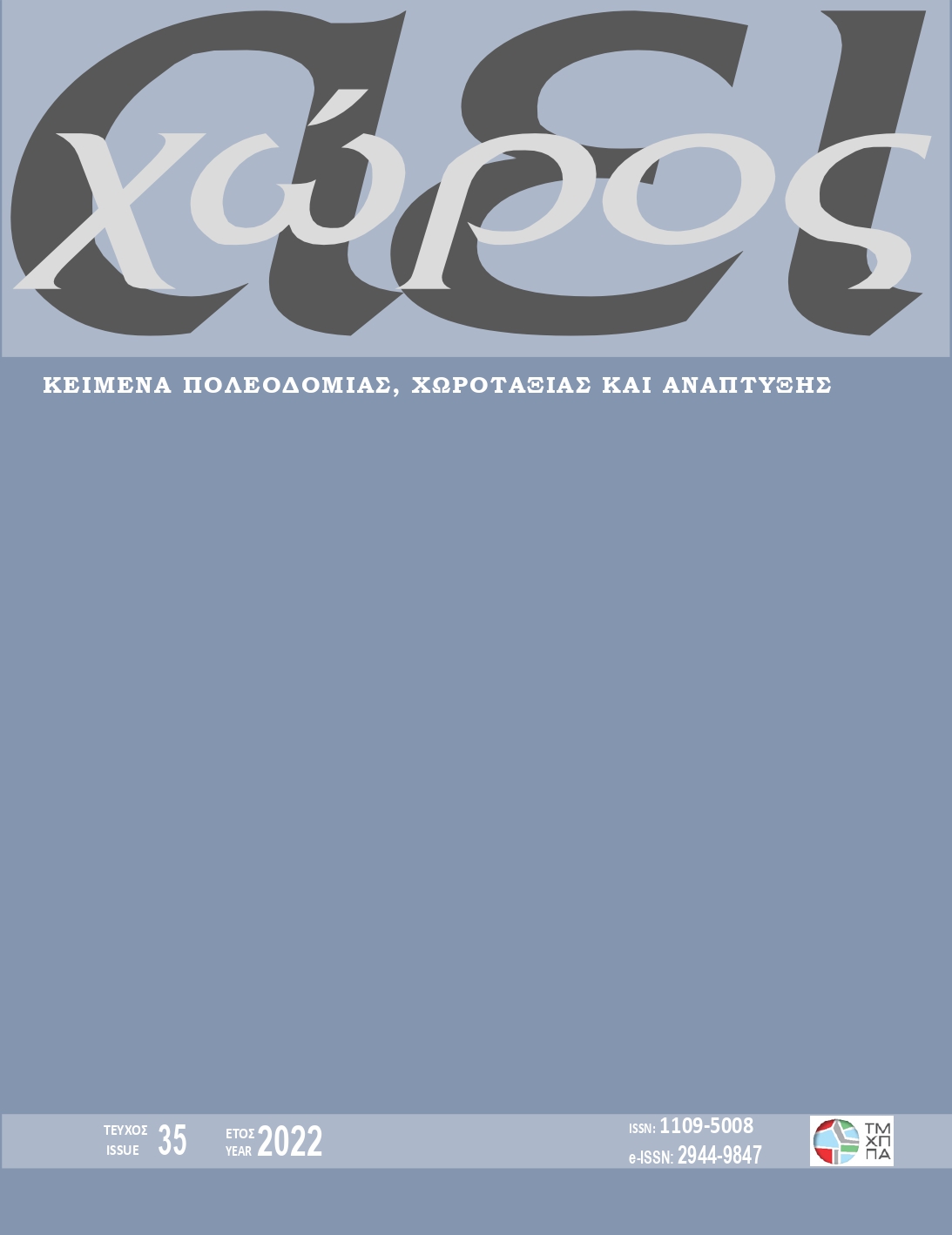Spatial planning and tourism entrepreneurship
the case of Regional Spatial Planning Frameworks
DOI:
https://doi.org/10.26253/heal.uth.ojs.aei.2022.1597Keywords:
Spatial planning, Tourism, Tourism entrepreneurship, Regional Spatial Planning FrameworksAbstract
Tourism is an immense global market that has grown rapidly in recent decades. Tourism activity is estimated to grow in the long run as an economic, social and cultural phenomenon worldwide, despite the adverse effects of the global economic crisis.
In Greece, due to the deficiencies in spatial policy, the touristic activity developed on the fringes of spatial planning, taking advantage of the legislation for outside urban plan delineation building construction. Thus, spatial planning in Greece was not the basis for tourism development but followed the developments with a significant delay.
This work seeks to investigate the treatment of tourism entrepreneurship through the system of spatial planning and specifically through the new 12 Regional Spatial Frameworks, pointing out key shortcomings in tourism entrepreneurship, applying a methodology of benchmarking of new Regional Spatial Frameworks.
Downloads
Downloads
Published
How to Cite
Issue
Section
License

This work is licensed under a Creative Commons Attribution-NonCommercial 4.0 International License.

